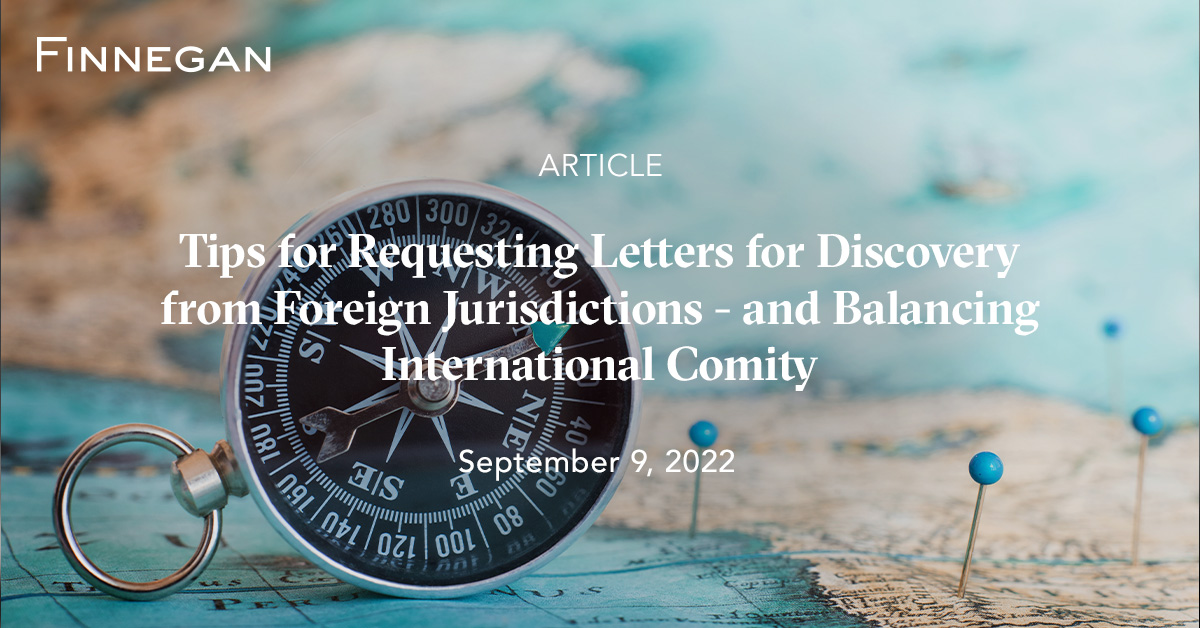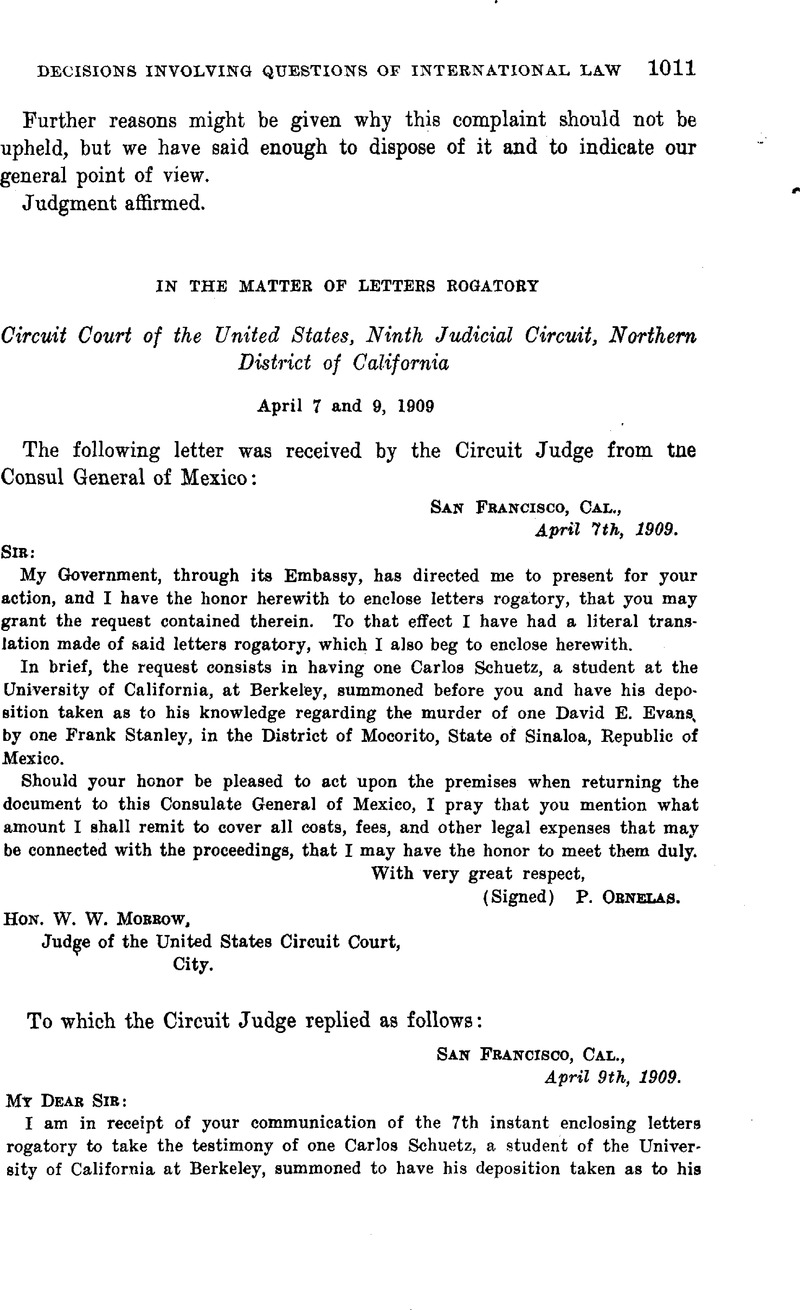How to Effectively Use Letters Rogatory in Cross-Border Legal Instances
Letters Rogatory Explained: Facilitating Legal Participation In Between Countries

Definition of Letters Rogatory
Letters rogatory are official demands made by a court in one jurisdiction to a court in an additional jurisdiction, seeking help in getting evidence or testament for a legal proceeding. This step-by-step system is crucial in the context of international legislation, where lawful systems may vary, and cross-border teamwork is essential. Letters rogatory help with the event of details that might be essential for settling situations, specifically in circumstances involving intricate global issues.
Typically, these requests emerge in civil, criminal, or administrative issues where an event requires evidence that lies outside the territory of the requesting court. The letters act as a way to make certain that the concepts of due procedure are promoted, allowing courts to accessibility proof that could or else stay unattainable as a result of geographical or lawful obstacles.
Making use of letters rogatory is controlled by worldwide treaties, bilateral agreements, or domestic laws, which delineate the treatments and obligations of the courts entailed. It is essential to note that the implementation of such demands is not assured; they rely on the regulations and techniques of the jurisdiction obtaining the letter. Therefore, letters rogatory are a crucial device for promoting legal participation and making certain justice throughout borders.
The Process of Issuing Letters Rogatory
Issuing letters rogatory includes an organized procedure that makes sure compliance with both international and residential lawful criteria. The asking for party, normally a court or lawful authority, drafts a formal demand outlining the nature of the aid sought, the proof or information required, and the lawful basis for the request. This document needs to be precise to promote understanding by the foreign jurisdiction.

The next action includes transmitting the letters rogatory to the assigned foreign authority. This is commonly done with diplomatic channels or international lawful aid structures, ensuring that the request is obtained and acknowledged by the international court. The foreign court then refines the demand according to its very own legal procedures, ultimately reacting to the asking for event with the popular information or proof, therefore assisting in international legal cooperation.
Relevance in International Regulation
The relevance of letters rogatory in global law can not be overemphasized, as they work as an essential device for judicial participation across boundaries. These official ask for support in legal issues enable courts in one jurisdiction to inquire, evidence, or the presence of witnesses from one more territory, thus facilitating the management of justice in multinational cases.
Letters rogatory are specifically vital in the context of globalization, where legal disagreements usually cover multiple nations. They enable the collection of proof that might or else be inaccessible, ensuring that legal process are notified and reasonable. By promoting collaboration in between judicial systems, letters rogatory help maintain the rule of legislation and advertise shared regard among nations.
In addition, the use of letters rogatory shows a dedication to international standards and concepts of collaboration, reflecting the interconnected nature of contemporary lawful practices. It shows the value of adhering to recognized procedures and treaties, such as the Hague Convention, which provides a structure for these demands - Letters rogatory. Ultimately, letters rogatory enhance the effectiveness of lawful procedures, guaranteeing that justice is not impeded by geographical boundaries
Difficulties and Limitations
Regardless of their relevance, letters rogatory face a number of difficulties and constraints that can impede their effectiveness. One primary concern is the differing lawful frameworks and procedures throughout jurisdictions, which can result in misunderstandings and hold-ups in the implementation of demands. Various nations might have distinctive needs for the credibility of letters rogatory, making complex the procedure further.
Additionally, the frequently lengthy nature of global lawful participation can hinder prompt accessibility to proof or witnesses. This hold-up might detrimentally affect ongoing investigations or legal proceedings, especially in situations needing urgent activity. The absence of resources and training in some jurisdictions can result in not enough handling of demands, leading to incomplete or poor responses.
Cultural differences and differing mindsets towards lawful procedures can likewise present considerable barriers. Countries with less formal legal systems might battle to conform with the step-by-step roughness expected in letters rogatory. Political stress between countries can influence the willingness to execute requests, resulting in an absence of collaboration and reducing the utility of this system in global legislation. These obstacles necessitate this content continual dialogue and reform to boost the efficacy of letters rogatory in lawful cooperation.
Instance Studies and Examples

On the other hand, challenges can arise, as seen in an instance entailing a European nation seeking proof in a continuous criminal issue from a non-EU country - Letters rogatory. The procedure was delayed as a result of bureaucratic difficulties and differing lawful standards, inevitably hindering the examination
These examples highlight that while letters rogatory can assist in international participation and quicken legal procedures, they likewise highlight the demand for clear interaction and understanding of lawful structures between nations. Such case studies highlight the relevance of refining this tool to improve effectiveness and performance in worldwide legal issues.
Verdict
In recap, letters rogatory offer as a vital device for helping with lawful participation between nations, making sure the collection important site of evidence and testimony throughout territories. Their relevance in worldwide regulation can not be overstated, as they advertise due process and enhance the performance of cross-border lawful procedures.
Letters rogatory are formal demands made by a court in one jurisdiction to a court in an additional territory, seeking support in acquiring evidence or statement for a lawful case. The asking for celebration, commonly a court or lawful authority, drafts an official request describing the nature of the help looked for, the evidence or details required, and the lawful basis for the demand. The international court after that processes the demand according to its own legal treatments, eventually reacting to the requesting event with the sought-after details or proof, thus promoting international lawful teamwork.
Moreover, the use why not look here of letters rogatory shows a commitment to worldwide standards and principles of collaboration, reflecting the interconnected nature of contemporary lawful practices.Worldwide lawful collaboration via letters rogatory is not without its real-world ramifications, as highlighted by various situation studies that highlight both difficulties and successes.